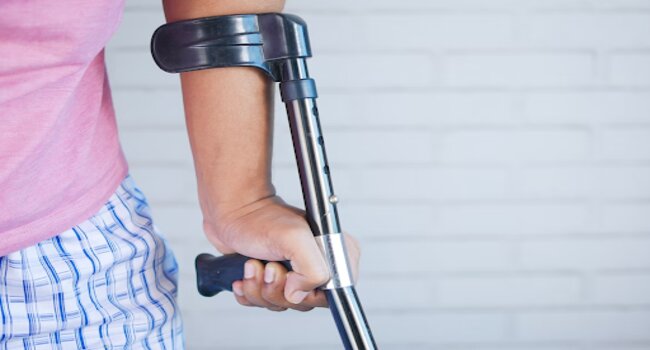When you are injured, physically or mentally, it affects every aspect of your life. Not only do you have to deal with the pain and suffering of the injury itself, but you also have to cope with the impact on your day-to-day life. This can be difficult for anyone, but it can be especially challenging if you are already dealing with a mental health condition. We will explore how a personal injury can affect both your mental and physical health, as well as some tips for coping.
Your Ability To Work May Be Impacted
Personal injuries can have a significant impact on your ability to work. Not only may you be unable to physically do your job, but you may also find it difficult to focus or concentrate. This can lead to decreased productivity and, in some cases, lost wages. If your injury is severe, you may even be unable to return to work at all. This can be a major financial blow, as well as a source of stress and anxiety. Because of this, consulting with the Peterson Law Office personal injury attorneys should be your first step. No matter what the impact of the personal injury is, an attorney can help you get the compensation you need and deserve. Additionally, if you are unable to work, your attorney can help you file for disability benefits.
Your Mental Health May Suffer
It’s not just your physical health that can be impacted by a personal injury, but your mental health as well. The stress of an injury can trigger anxiety and depression. You may also find it difficult to cope with the changes in your life brought on by the injury. For example, if you are no longer able to do the things you love or participate in activities you enjoy, you may feel isolated and alone. This can lead to feelings of sadness and worthlessness. If you were already dealing with a mental health condition before your injury, the symptoms may become worse. It’s important to seek help if you are struggling to cope with your injury. Talking to a therapist or counselor can be helpful, as well as joining a support group for people with similar injuries.
You May Feel Anxious or Depressed
As mentioned above, anxiety and depression are common effects of personal injury. This is because the injury can often be a major source of stress. If you are feeling anxious or depressed, it’s important to seek help from a therapist or counselor. There are many treatment options available, such as medication and talk therapy.
Post-Traumatic Stress Disorder
If you have experienced a traumatic injury, you may be at risk for developing post-traumatic stress disorder (PTSD). PTSD is a mental health condition that can be triggered by a traumatic event. Symptoms of PTSD include flashbacks, nightmares, anxiety, and depression. If you are struggling with PTSD, it’s important to seek help from a therapist or counselor. There are many treatment options available, such as exposure therapy and eye movement desensitization and reprocessing (EMDR).
You May Struggle With Addiction
Unfortunately, many people who suffer from a personal injury turn to drugs or alcohol to cope with the pain and stress. This can lead to addiction and, in some cases, overdose. If you have a history of substance abuse, you may be especially at risk for relapse. If you are struggling with addiction, it’s important to seek help from a treatment center or recovery program. There are many resources available to help you recover from addiction and get your life back on track.
You May Experience Chronic Pain
One of the most common effects of a personal injury is chronic pain. This can be extremely debilitating and make it difficult to do the things you love. Chronic pain can also lead to other health problems, such as insomnia and anxiety. If you are struggling with chronic pain, there are many treatment options available. These include both medication and non-medication treatments. It’s important to talk to your doctor about what options are best for you.
A Higher Risk of Developing an Illness

If you suffer from a personal injury, you may have a higher risk of developing an illness. This is especially true if the injury was to your head or neck. Traumatic brain injuries, for example, have been linked to an increased risk of developing Alzheimer’s disease and other forms of dementia. If you have suffered a head or neck injury, it’s important to be monitored by a doctor for any changes in your health. Additionally, if you develop any new or worsening symptoms, it’s important to see a doctor right away.
You May Struggle With Flashbacks
Many people who have experienced a personal injury find that they struggle with flashbacks. This can be especially true if the injury was traumatic. Flashbacks can be triggered by anything that reminds you of the injury, such as a certain sound, smell, or sight. When a flashback occurs, you may feel like you are re-experiencing the trauma. This can be very distressing and make it difficult to move on from the injury. If you are struggling with flashbacks, it’s important to seek help from a therapist or counselor. There are many treatment options available, such as exposure therapy and eye movement desensitization and reprocessing (EMDR).
Difficulty Sleeping
Another common effect of a personal injury is difficulty sleeping. This can be caused by chronic pain, anxiety, or depression. If you have difficulty sleeping, it’s important to talk to your doctor. There are many treatment options available, such as medication and relaxation techniques. Difficulty sleeping may also be impacted by the psychological toll a personal injury has taken on you. This is also something a therapist can help you with if you are struggling.
A personal injury can have many negative effects on your mental and physical health. If you are struggling with any of these effects, it’s important to seek help from a doctor or therapist. There are many resources available to help you recover from an injury and get your life back on track. Make sure to talk to your doctor about what options are best for you.


















